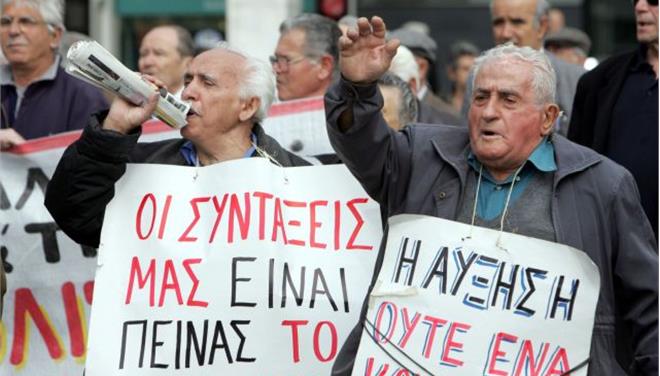 Pensioners demonstrating in Athens. File photo. Credit: AMNA
Pensioners demonstrating in Athens. File photo. Credit: AMNA
Greece’s ongoing pension crisis is worsening, with new data revealing a significant decline in average pension values. According to the Helios system, the average main pension for July was just under €800 gross, a decrease from previous years.
This decline highlights the severe financial strain on pensioners and underscores the urgent need for reforms.
The average main pension in July 2025 was €783 gross, a notable drop from €821.99 a year prior. This decline is even more pronounced for newly issued pensions, which stood at an average of just €776.12 gross in July.
This situation helps explain why 13.6 percent of Greece’s population, including many pensioners, are at risk of poverty, according to the Hellenic Statistical Authority (ELSTAT).
Related: Close to 3 Million Greeks on the Brink of Poverty, Eurostat Says
Pensions in Greece and economic factors
A major factor contributing to these low pension levels is the Katrougalos Law of 2016, which introduced low replacement rates for new retirees. This has led to nearly 200,000 new pensioners annually receiving particularly low benefits.
A stark contrast is visible between the average new main pension in the private sector (€776.12 gross) and the public sector (€1,226.74 gross).
The crisis is also the result of a confluence of long-term economic issues:
The aging population
The decade-long fiscal crisis and subsequent bailout policies
Years of low wages and high unemployment
The data also shows that supplementary pensions are similarly declining, with a significant drop from €196.89 in July 2024 to €178.51 in July 2025. This further erodes the total income of pensioners.
This alarming trend emphasizes the critical need for a new approach to the pension system to ensure financial adequacy and prevent a deepening social crisis.
Related: German FinMin: It was the Greek Gov’t that Chose to Cut Pensions
